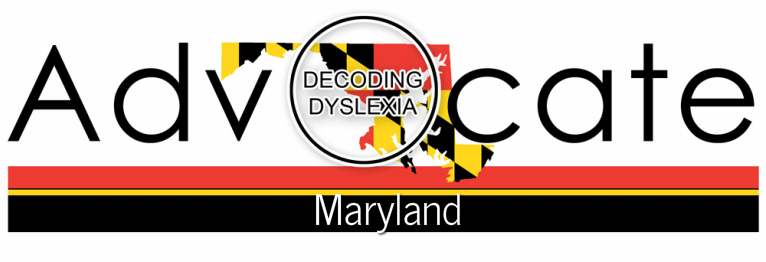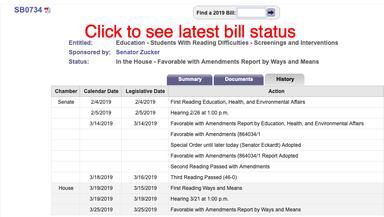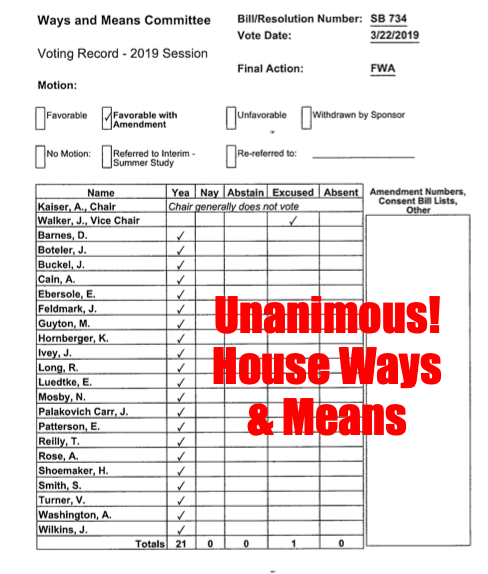| LISTEN to the moving speech by Senator Craig Zucker on the Ready to Read bill, SB 734: start at 51:03. BILL HISTORY On March 18, after a moving floor speech by Senate sponsor Craig Zucker, D-Montgomery, the bill was approved unanimously by the Maryland Senate. Senator Zucker noted that he would have benefited from reading screening because he struggled to learn for many years. By the time he was tested, he had significant gaps in his learning. Senator Zucker described overhearing someone say that he "would never amount to anything" and he made a promise to himself to someday run for office -- and now here he is in the Maryland Senate! LISTEN HERE. Please thank Senator Zucker and Delegate Luedtke for their stewardship and advocacy on both bills. They spent countless hours behind the scenes educating colleagues and working with advocates and others to ensure the legislation retained the intent and best practices to benefit students who may struggle to read. | STATUS UPDATE The Ready to Read bill, SB 734, requires screening & interventions for students at risk for reading difficulties and was heard by the House Ways & Means Committee on Thursday, March 21. Senator Craig Zucker testified in support of the bill in a "sponsor only" hearing. There were no questions for Sen. Zucker. Later in the afternoon, the House Ways & Means Education Subcommittee, Chaired by Del. Eric Luedtke, brought the bill up for discussion -- three technical amendments were read and are noted in the bill text below. Those amendments and the bill were agreed to unanimously by the subcommittee with Del. Reilly (Harford) making the motion and Del. Guyton (Baltimore County) providing the second. The bill was then referred back to the full committee where it received unanimous support, with one excused absence. The bill will next be scheduled for second and third reading on the House floor next week. The Senate is expected to concur with the technical amendments and no further changes to the legislation are expected. |
Amended Bill Language Summary
Amended Version of Ready To Read, SB 734
(A): DEFINITIONS
Amended Version of Ready To Read, SB 734
(A): DEFINITIONS
- Screening is defined as a brief, valid, and reliable measurement procedure used to identify or predict whether a student may be at risk for poor learning outcomes.
- Other definitions include supplemental reading instruction, phonemic awareness, phonics, fluency, phonological awareness, student.
- DELETED: informal diagnostic assessment, progress monitoring and amended definition of student.
(A)(7): WHO IS SCREENED: Student is amended and defined as:
- All students in Kindergarten;
- First grade is screened only if the student was not screened in K or demonstrated difficulty mastering grade level reading in K.
- Students who enter or transfer to an elementary school from an elementary school, are screened unless a county board determines the student has already been screened and does not demonstrate difficulty mastering grade-level reading.
- Beginning in 2020-2021 school year, each county board shall ensure that a student is screened to identify if the student is at risk for reading difficulties.
(B)(3): PARENT NOTIFICATION
(H) TECHNICAL SUPPORT: The Department shall provide: technical support for the county boards to provide:
- description of the screening and supplemental instruction process in the districts; and
- any checklists or forms needed to support the screening protocol.
- accurately and reliably identify students at risk for poor learning outcomes;
- are developmentally appropriate;
- are economical to administer in time and cost; and
- use norm-referenced or criterion-based scores.
- phonemic and phonological awareness and processing;
- DELETED:
- knowledge of letter names and letter sounds
- rapid automatized naming
- PK, Grade 1 and students in 2+ if concerns are noted. Grade one skills included phonological and phonemic awareness and processing, knowledge of letter names and letter sound associations for uppercase and lowercase letters, normed rapid automatized naming, automatic and fluent single word recognition and oral reading fluency.
- Student shall be screened according to the schedule established by the county board;
- Supplemental reading instruction is defined; technical amendment corrected "systemic" to "systematic" in the definition.
- Provide a notification letter to the parent or guardian of the student that includes:
- The screening results; and
- A description of the supplemental reading instruction that will be provided to the student.
- Reading screening instruments used in the school district; and
- A checklist of early warning signs of reading difficulty/dyslexia by age.
- # students in each grade,
- # students in each grade screened,
- # students at risk on screening instrument;
- # students who received supplemental reading help,
- data must be disaggregated and searchable by district and posted on the state website
(H) TECHNICAL SUPPORT: The Department shall provide: technical support for the county boards to provide:
- Training opportunities annually for individuals who conduct screenings under this section and for school administrators.
- Training may include:
- The administration and interpretation of screenings, informal diagnostic assessments, progress monitoring instruments, and student data;
- Interpreting screenings and assessments for parents;
- Best practices for designing and implementing supplemental reading instruction; and
- The elements, principles, and best practices of supplemental reading instruction.
- Section 2: It is the intent of the GA that money appropriated in accordance with The Blueprint for Maryland’s Future, Chapter xx, Senate Bill 1030 (HB 1413) of 2019, shall be used to offset the cost of implementation of Section I of this act.




 RSS Feed
RSS Feed